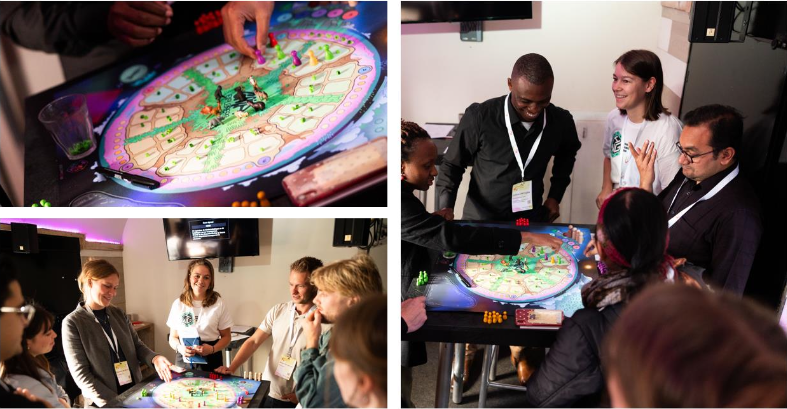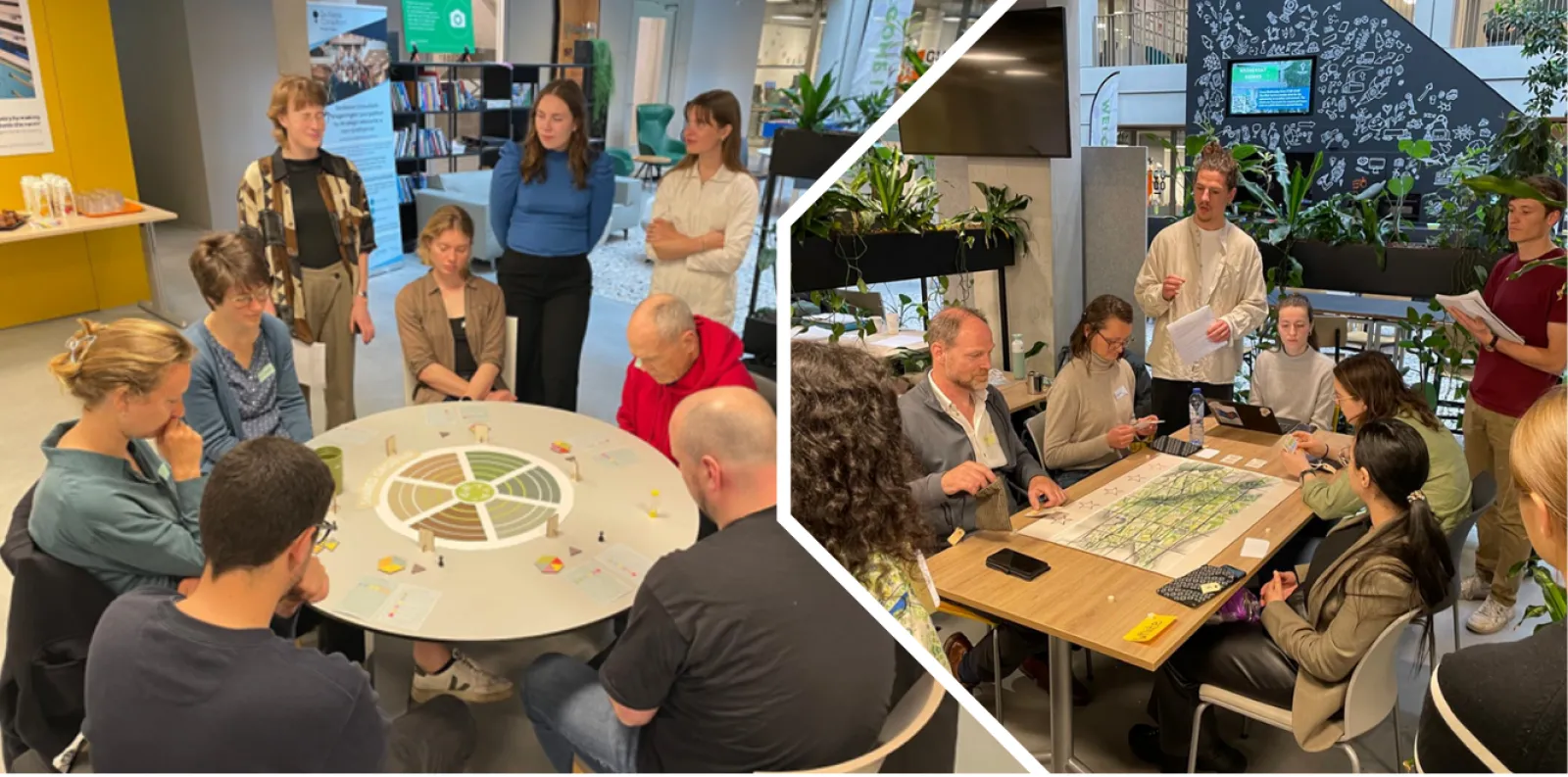Gaia Explorers is a collaborative serious board game for 4 to 8 players, designed for a 30-minute session by Federico Andreotti and illustrated by Iván McGill. Players explore future scenarios while navigating the challenges of living within planetary boundaries. Inspired by Lovelock’s Gaia hypothesis and Post- Growth principles, the game challenges players to balance food production, biodiversity conservation, and emissions reduction on a newly discovered planet. The game’s mechanics draw on the EAT-Lancet guidelines and Planetary Boundaries framework to model sustainability dynamics (Richardson et al. 2023). Through individual and collective strategies, participants tackle key issues such as sustainable food production and consumption, greenhouse gas reduction, land use, and biodiversity conservation.
How does it work? Over five rounds, participants have to produce eight "blobs" per round to sustain the city while managing trade-offs. Each round follows three steps: (1) Sending avatars to explore plots; (2) Collecting or sharing resources and triggering social and ecological consequences; (3) Delivering food (or feed) to the city and evaluating emissions. Furthermore the game has post-growth dynamics, which going beyond principle of extractivism (McGreevy et al. 2022), tackling multiple planetary boundaries: e.g. biodiversity loss triggers activist interventions, altering land access in future rounds. Players’ choices influence whether the city remains “happy” or faces resource scarcity, creating a dynamic tension between short-term gains and long-term sustainability. A guided debrief after each round helps players reflect on emergent dynamics, trade-offs, and real-world parallels in food system governance. At the end of round five, participants document the final board, where each step and decision is visibly tracked. Together with a facilitator, they then engage in an extended debriefing session, discussing game dynamics, personal emotions, key insights, and lessons learned.
The game is currently used in education and research at Wageningen University, and at the WUR Games Hub, including MSc and PhD courses in social sciences, environmental studies, and farming and food systems. It is also part of thesis projects, where students explore its potential as a tool for participatory research and stakeholder engagement. Furthermore, Gaia Explorers is used as an intervention and research tool in projects such as the EU-project Re-Livestock, the Global Network of Lighthouse Farms and the NFP World Food Day exploring resilience in farming and food systems futures. It is also applied in discussions with science-policy interface experts, facilitating dialogue on sustainable governance. The development, adaptation, and assessment of Gaia Explorers integrate multiple theoretical frameworks, including resilience frameworks, boundary crossing, social learning, and values frameworks.


Comments (0)